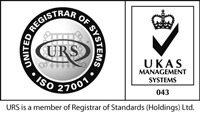Advantages
- Free to use – users are offered a plethora of free-of-charge features built in the Community Edition
- Scalable – due to the fact that the platform was developed in PHP, it has support for new features added by users
- Growing developer community
- Customizable
- Mobile-friendly
- Wide range of functionalities
Disadvantages
- It’s difficult for beginners – just as the majority of the highly capable systems which allow a lot of customizations, Magento can be a headache if you don’t have experience with this sort of software.
- Cost – while the Magento Community Edition is available for free, the Enterprise Edition comes with a yearly subscription fee.
- Hosting fees. Because the platform is rather large, consisting of more than 200,000 files and around 200 database tables, it’s recommended to pay for a dedicated hosting server. Of course, you can run the system on shared hosting as well, but you will probably experience slower performance, directly affecting your sales.
Components
- Magento Modules – Modules are designed to extend and improve functionality, or add new capabilities. As modules are engineered to work independently, adding or removing any of them shouldn’t negatively impact the remaining ones.
- Magento Extensions
- Language packages – The language package basically represents a series of translation dictionaries for a specific language, along with the information required for Magento to properly process the information.
Development tools
- PHP IDE (NetBeans, PhpStorm)
- LAMP / WAMP / XAMPP with X-Debug
- MySQL GUI Tools (MySQL Workbench, HeidiSQL
Versions
- Magento Open Source
- Magento Commerce
- Magento Commerce (On-Premises)







